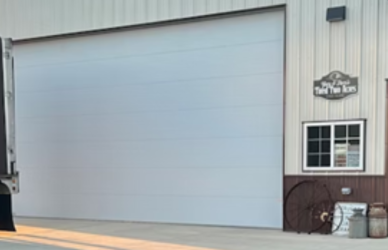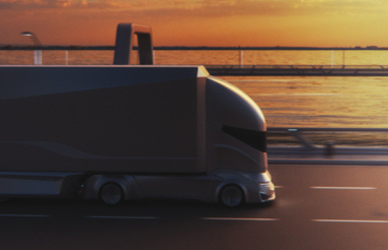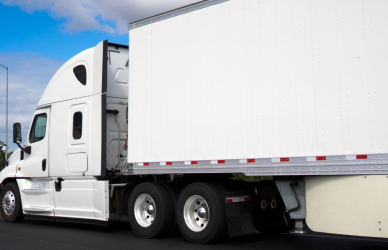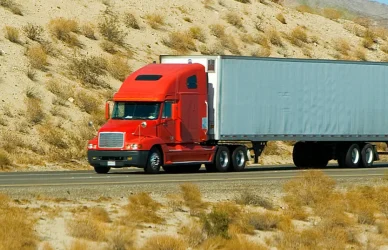Autonomous trucks: the ultimate solution or just wishful thinking? We’ve all heard the lofty promises of crash-free roads and unprecedented efficiency. But is this technology really as game changing as it seems?
CNBC recently tackled this burning question in a segment on the future of autonomous trucking. And unlike other media reports, they didn’t just rely on the hype. They actually spoke to a real trucker for a dose of reality.
Enter Doug Smith, a level-headed owner-operator from Utah and a member of the OOIDA Board. In his interview, he sheds light on the true potential and limitations of autonomous trucks.
“I think there are tremendous opportunities for driver assist to improve safety and less driver fatigue,” Smith said. “But I cannot see 80,000-pound trucks in my lifetime running up and down the road as just harmless gentle giants.”
CNBC’s coverage highlights Aurora, an autonomous vehicle company on the cusp of revolutionizing transportation. With their cutting-edge technology, they are nearing the exciting milestone of achieving fully driverless operations.
“Today, if you want to take strawberries from California to Dallas, it takes about three days,” said Chris Urmson, Aurora’s co-founder and CEO. “With the Aurora driver, you’ll be able to do that in about 24 hours.”
Supporters of this technology will tell you the safety benefits as well as the significant cost savings potential. According to experts, a truck’s daily mileage could skyrocket from 450 or 500 miles to over 1,000 miles. This translates to increased profitability for truck operators.
It’s important to note, however, that while the technology has safety benefits, it also poses numerous safety challenges that need to be addressed.
“Despite the various claims that autonomous vehicles will lead to zero deaths, there continue to be real-world situations in which automation has devastatingly failed,” the Owner-Operator Independent Drivers Association wrote in comments filed earlier this year to the Federal Motor Carrier Safety Administration. “While autonomous vehicles might improve safety under certain conditions, they create new risks with dangerous outcomes.”
In a segment aired in 2020 on “60 Minutes,” Linda Allen, a member of the OOIDA board, voiced her concerns.
“There are too many things that can go wrong,” Allen said during the segment. “I was on I-75 last month. There was a bad accident, and the state trooper came out and started hand-signaling vehicles, ‘You go here. You go there.’ How’s an autonomous truck going to recognize what an officer wants you to do? How’s that going to work?”
Smith had doubts about the technology’s performance in unfavorable weather conditions.
“You don’t see anyone talking about autonomous trucking north of Interstate 40, where the snow falls,” the Utah trucker said. “And the kind of trucking I do, I’m pretty sure it will never be replaced by autonomous trucks.”
Smith opposes the notion that autonomous trucks are the solution to a shortage of drivers.
“The driver shortage has been talked about forever, but it’s really a retention problem. Every year, there are 450,000 new CDLs (issued),” Smith said. “Many of them are called 90-day wonders because after 90 days, they’re like, ‘This is not for me.’”
Aurora and other companies are pushing to introduce autonomous trucking technology urgently, despite Aurora’s significant financial losses. It is crucial, however, for regulators and lawmakers to carefully consider the opinions and concerns of truck drivers, as their decisions will have a lasting impact on the industry.
“While we are still years away from fully automated trucks, decisions made today will have a significant impact on the deployment of autonomous vehicle technologies, ADS-equipped commercial motor vehicles, and, ultimately, on the livelihood of professional truck drivers and the economy at large,” OOIDA wrote. “Elected officials, federal regulators and our industry partners must develop autonomous vehicle policies in a responsible manner that considers the perspective of American truckers.”
Source: Land Line











